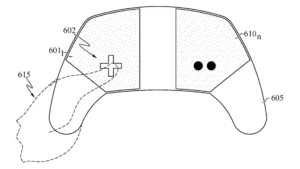In a significant development in the world of intellectual property and telecommunications, Network-1 Technologies, Inc. (NYSE: NTIP) has initiated a patent infringement lawsuit against Samsung Electronics Co., Ltd. and Samsung Electronics America, Inc. The suit was filed in the U.S. District Court for the Eastern District of Texas, a jurisdiction known for handling complex patent litigation.
The case revolves around Samsung’s alleged unauthorized use of Network-1’s eSIM and 5G authentication technologies in a wide range of its mobile devices, including smartphones, tablets, and smartwatches.
🔍 Allegations and Patent Details
Network-1 asserts that six U.S. patents from its M2M/IoT (Machine-to-Machine/Internet of Things) portfolio are being violated. These patents—acquired by Network-1 in December 2017—are said to cover core authentication and secure communication technologies used in eSIM-based mobile devices.
The patents in question are expected to remain valid until 2033–2034, placing them well within their enforceable lifespan.
The complaint alleges that Samsung incorporated these patented technologies into its Galaxy series of devices without obtaining a proper license, thereby violating Network-1’s intellectual property rights.
📈 Market Relevance and Timing
The timing of the lawsuit is strategic. According to the Trusted Connectivity Alliance, more than 500 million eSIM-capable devices were shipped globally in 2024 alone—a 56% rise in eSIM profile downloads from the previous year. Samsung is a major player in this fast-growing market.
With the rapid expansion of 5G and eSIM adoption, Network-1’s patented technologies play a critical role in ensuring secure authentication and connectivity—making them highly valuable in today’s mobile device ecosystem.
🧠 About Network-1 Technologies
Network-1 is a well-known intellectual property licensing company that specializes in acquiring and enforcing technology patents. The company does not manufacture products but focuses on monetizing its IP assets through licensing and litigation.
Their M2M/IoT patent portfolio includes:
41 U.S. patents
15 international patents
25 pending applications globally
⚖️ Legal Strategy and Implications
Filing in the Eastern District of Texas—a patent-holder-friendly court—could give Network-1 a strategic advantage. Samsung, on the other hand, is expected to vigorously defend its position, potentially challenging the validity, enforceability, or scope of the patents.
Legal experts suggest that if Network-1 prevails, it could result in:
A licensing agreement worth millions
Monetary damages
A possible injunction against the sale of infringing devices
Given the global scale of Samsung’s product distribution, the outcome of this case could have far-reaching consequences for both parties.
🔮 What’s Next?
Both parties are likely to engage in extensive pre-trial activities, including evidence discovery and expert testimony. The tech industry will be closely watching the case, which could reshape licensing norms in the high-growth sectors of 5G, IoT, and mobile security.




